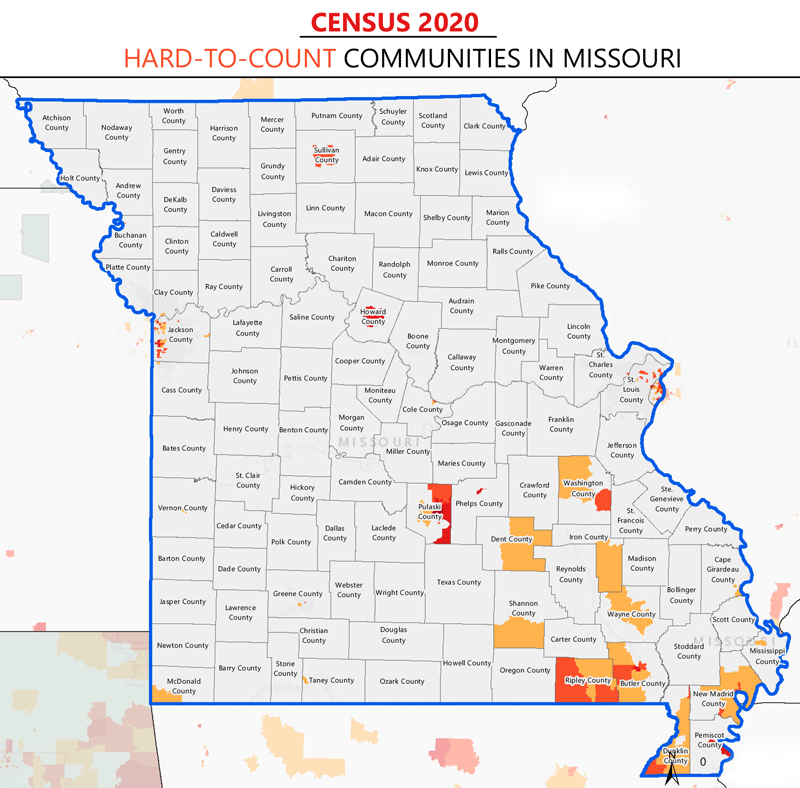So, you see why counting everyone in Missouri in the 2020 census is so important for the health of our state. However, I can't overstate what a huge undertaking it is. Although 2020 may seem far in the future, the education and coordination needed to ensure we have an accurate count means we need to start planning now.
The U.S. Census Bureau will oversee the work, but all sectors of Missouri will have the opportunity to do their part in making sure our tally is correct. For example, some communities will benefit from having trusted voices help explain the value of being counted to people who may be distrustful of the government.

 Nonprofit organizations can help connect with
hard-to-reach populations, which had less than 73 percent participation in 2010. Let's unite around the importance of an accurate census count and embrace the value of sharing census knowledge with our communities.
The good news is that the census is an opportunity for communities to celebrate our every-decade enumeration of ourselves; it is an affirmation of our democracy and grounded in our American concept of "we the people." The less good news is that several issues stand in the way. First is undercounting. In 2010 more than 5 million children under age 5 were not counted, making it imperative in 2020 to make a special effort to count young children. Second, Missouri has not done well in counting all Missourians. One estimate found that Missouri lost more than $150 million in 2015 for Medicaid funding alone due to undercounting, the fourth highest amount of any state. Finally, the 2020 census will be the first to be electronic as well as on paper.
The concern is that residents of rural areas, with 21 percent of homes lacking internet access, will be at risk of being undercounted. This could have negative impact on Missouri because of our extensive rural population.
The future health of Missouri is important to all of us, and we must demonstrate that by promoting the importance of the census and making sure everyone is counted. Census data are secure and every person included is important! Healthy communities lead to healthier individuals and a more equitable state - a win for all Missourians!
|